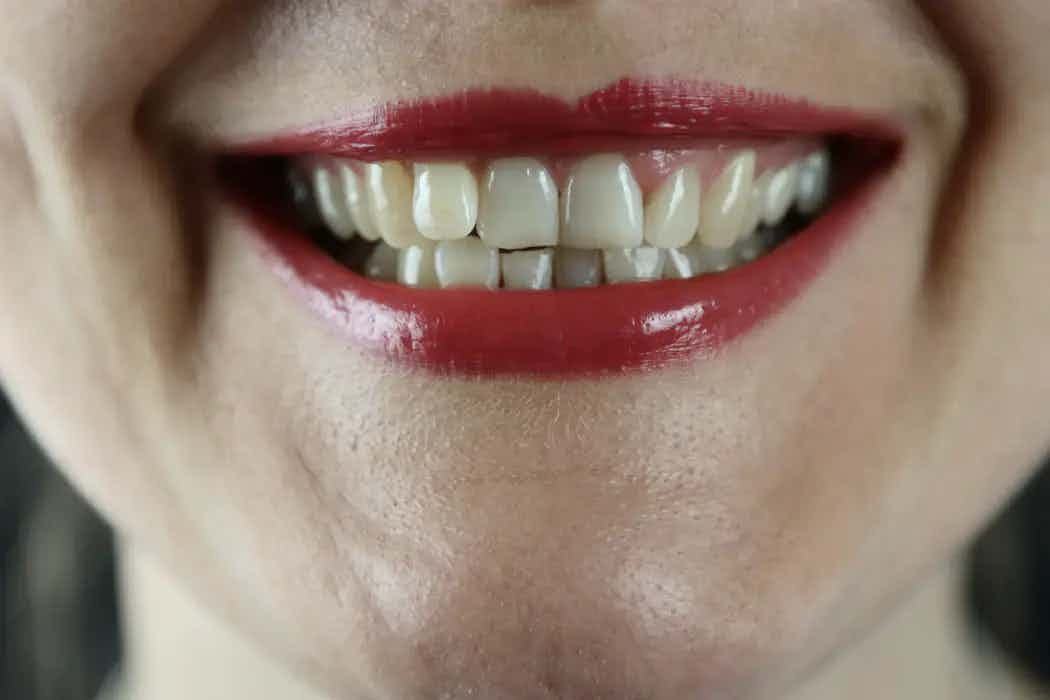Are you worried you, or someone you know, might have mouth cancer? Let's look at the causes, symptoms, prevention, and treatment that exist for mouth cancer today.
What is the main cause of oral cancer?
There is no one leading cause of oral cancer. Mouth cancer occurs when your cells' DNA mutates, and cells grow and divide in an unhealthy manner. What causes this is unknown. Various risk factors have, however, been identified. These include:
- Tobacco (in any form).
- Heavy sun exposure to your lips.
- Regularly consuming large amounts of alcohol.
- The human papillomavirus (HPV).
- A weakened immune system.
- Chewing betel nuts.
- A poor diet.
- Persistent oral wounds (such as a broken tooth cutting your tongue open over a prolonged amount of time)
A note on HPV
HPV exists in many different strands, and most people will get HPV at some point in their life. While considered a sexually transmitted disease (STD), HPV can be transmitted simply by touching another human being, should that person happen to have it on their hands. Most people don't get sick from HPV—the body fights off the infection without you even knowing about it. Most types are also relatively harmless. However, other strands can cause various forms of cancer, including mouth cancer and cervical cancer.
Let's talk a little bit more about a weakened immune system as well.
Improving or preventing a weakened immune system
Usually, a weakened immune system is caused by some underlying health problem. That said, many health problems can be prevented and/or improved by working to improve your overall health.
Some keys to keeping your immune system healthy include:
- Getting enough sleep. Try to go to bed around the same time every night and wake up at the same time each morning.
- Exercising for 20-60 minutes per day (alternating between cardio and strength exercises throughout the week).
- Spending time outdoors regularly.
- Ensuring you do not suffer from negative stress and, if you do, tackling that stress with relaxation and breathing techniques, taking time off to socialise, meditate, exercise, and so forth.
- Eating a healthy whole foods diet (i.e. little to no refined or processed foods or additives).
- Socialising and partaking in other activities that make you happy.
Leading a balanced lifestyle includes more than eating well and exercising. And, interestingly, all the different elements appear to affect your immune system.
Mouth cancer prevention
The best way to prevent mouth cancer beyond improving your overall immune system and health is to avoid the common risk factors. Meaning you:
- Spend time outdoors, but not in the glaring sun in the middle of the day—if you do, wear a hat or limit the time spent in the sun
- Keep your alcohol consumption moderate.
- Don't use products containing tobacco.
- Don't chew betel nuts.
- Don't consume processed foods.
Do regular checkups.
As with the rest of your body, you should have your mouth checked regularly. Going to the dentist at least once a year can help you detect early-stage cancer. The earlier you detect cancer, the easier it is to treat.
Symptoms of mouth cancer
What are the symptoms of mouth cancer? As it turns out, there are several.
Symptoms of mouth cancer can occur on the:
- Gums
- Lips
- Tongue
- Floor of the mouth
- Roof of the mouth
- Inner linings of your cheeks
In other words, mouth cancer can form pretty much anywhere in your mouth. Symptoms of mouth cancer include:
- Growths in the mouth or neck
- A white or reddish patch that does not go away (i.e. it's not a mouth ulcer or cold sore but looks similar to one and won't go away)
- Pain in your mouth, in your ears, or when swallowing
- Loose teeth
- Wounds that do not heal (such as a wound after extracting a tooth)
- An unexplained change in your speech pattern, such as a lisp
If you have any of these symptoms, it's essential to consult a doctor or dentist who can refer you to a specialist if needed. Do this as soon as possible. Beware that similar symptoms can occur for other conditions. It could be as simple as you having a cavity! But the sooner you have it checked, the sooner you can have it treated and the smaller the chance of it becoming serious, no matter what it is.
Oral Health Coach Leigh Hunter from Growing Smiles told Health Times: "Mouth cancer is on the rise. Cases in the UK have increased by over 100% in the last 20 years yet nearly 50% of UK adults do not realise that a long-lasting mouth ulcer may be cancer. Less than 20% of people are aware of the major risk factors.
"Everyone over the age of 16 should check their mouth EVERY month for signs of mouth cancer – it could save your life."
Treating mouth cancer
In addition to improving your overall lifestyle (if needed), treatment for mouth cancer includes:
- Surgery
- Radiotherapy
- Chemotherapy
You need to discuss your treatment plan with your doctor. As always, it's good to get a second opinion.
If you want to use alternative treatments in conjunction with the treatment plan your doctor prescribes, you need to discuss this with your doctor also. For example, you might want to take a curcumin (turmeric) supplement or other supplements. Remember that improving your overall health is vital in supporting your recovery. Therefore, look not only at curing cancer but also improving your health.
It may pay off to speak with a doctor who uses both traditional and Western medicine to treat mouth cancer. That way, you can take what they say to your doctor. Do look into the reputation of whatever doctor you use.
Note that because surgery and radiotherapy may affect your ability to eat, your treatment plan sometimes includes speaking to a nutritionist. Likewise, treatment can affect your ability to speak, so a speech therapist may be involved.
Mental health and cancer
If you are diagnosed with oral cancer, chances are your mental health, and that of those around, you will also be affected. While early-stage mouth cancers are often cured effectively, you will likely still face any potential fear of death you may have. Some people spiral into depression, as they cannot handle the fear and anxiety around the disease. This is why your doctor might prescribe that you see a psychologist—even if you are not currently feeling anxious about your diagnosis.
If diagnosed with mouth cancer, you must ensure both you and your loved ones have the support they need. What's more, you must make a mental effort to engage in positive activities and shift your mindset to focus on enjoying your life. Sitting around fretting about what might happen if things go wrong (chances are they go right) is only wasting the time you have with those you love.
Speak to the professionals. Read the books. And do whatever you can to make the most out of your life.
What causes mouth cancer?
While anyone can get mouth cancer, it's much more common in those over 55, especially those who:
- Use tobacco products
- Have a poor diet
- Consume large amounts of alcohol
- Have poor oral hygiene
- Suffer from a weakened immune system
- Chew betel nuts
- Get heavy sun exposure to their lips
- Have been exposed to certain types of HPV
The best way to prevent mouth cancer is to improve your overall lifestyle and see a dentist regularly. If you have been diagnosed with mouth cancer, in addition to your treatment plan, you should work to improve your health at large. Most people diagnosed with oral cancer only need surgery.
To ensure you are mentally prepared to deal with the disease and heal, do engage a therapist. Also, take action to improve your overall mindset and make the most of your life. Even if your health is perfect, this is the way to go! Anything but is just a waste of your time.






